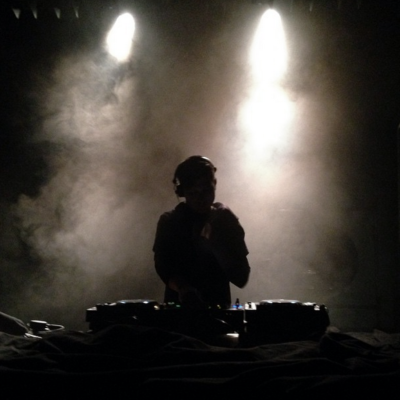As a co-resident of Berlin club night Janus, M.E.S.H. has been constantly active bringing fragmented rhythms to the dancefloor and refiguring club dynamics on records such as Share The Blame and Scythians. His debut full-length, Piteous Gate, was a bold step forward, leaving behind much of the dance-informed elements of his previous work and creating an unpredictable, sometimes frightening album of oblique, theatrical sound-stages. Recently, he released a new record on PAN entitled Damagec Merc. He will be playing at Skanu Mezs on 14 October 2016.
You said that your previous PAN record, Piteous Gate, was partly inspired by the mediation of the Ukraine conflict. Is there such inspiration behind the new record as well?
The motivation behind making Damaged Merc was mostly a sense of boredom with these discussions that had cropped up about what is or isn’t club music, what it means for dance music to be ‘challenging,’ the idea of blurring lines that were never that clearly drawn to begin with. Piteous Gate was a sort of document of a zone between a fraught inner environment, a series of loosely connected political moments, and the unthinkably complex and inhuman networked layers mediating between them. Damaged Merc is just a couple club tracks to insert into the circulation of dance music in gratitude for all the amazing dance music other people have made and allowed me to play in my weird job as a DJ.
Berlin has become a haven not only for electronic music producers, but also for digital activists/hackers/theorists etc. Are there any connections between these scenes, or should there be? (esp in the type of music you make). Holly Herndon has collaborated with Metahaven (whose latest film The Sprawl, coincidentally, also deals with the Ukrainian conflict) and supported Chelsea Manning, for instance.
I really don’t know much about that hacktivist, or whatever, community in Berlin, or at least I am extremely tangential to that. I do appreciate Metahaven’s interrogation of mimetic warfare through design theory, also theorists like Benjamin Bratton whose book The Stack is a super-granular vertical topology of this semi-accidental planetary scale system of mediation, this big Piranesi-esque unfolding sewer jail of info that we squirt our dreams into.
Your new EP has come out without much prior promotion, Autechre has done more or less the same recently with their new release. You mentioned being inspired by them while growing up. Can you describe your path to music and music-making?
My path to music-making isn’t particularly interesting, time passes and you run out of other options, and the things you’ve always done have their inertia. I like music that is sort of like looking at a painting where you intuitively have a sense that the image continues beyond the frame. A lot of music sounds like an idiot in a room making plans.
You mention having an affinity for “big sounds”. How important is sound design to you?
It’s important for me (and this strictly applies to me, as I look for completely different and even contradictory things in other music) in the sense that I tend to walk backwards into music through sound. I like that huge stage of clear digital audio and the tricks that can make the territory even bigger. For me music is a different place. I love to be intricate but not technical. I don’t even know what I’m doing.
In comparison to your previous record, Damaged Merc sounds more direct, exogenous, like an exhale to the inhale of Piteous Gate. Can you talk about the new record in terms of the music-making process behind it?
It was a pretty simple and direct process. Trying to punch in the drums by hand. Finding an awkward but loopable groove and playing the notes on top of it. The track Kritikal Thirst has one of the dumbest basslines ever which I like a lot.
Janus is going strong. What is your involvement in it nowadays and what is the importance of such collectives in underground music, in your opinion?
We’ve done a couple Janus nights at Berghain and in other cities now and Dan does a lot of smaller one-off things like co-producing nights in Berlin for Príncipe Discos. We’re now connecting more with other crews with some fun stuff coming up this year in Mexico and Japan. I also designed the artwork for the upcoming KABLAM release, which I hope will be huge because it’s very good! Collectives are important because they help artists build shared sonic languages and contextualise each other’s work before it gets swallowed up by clickbait farms.
Interview by Lucia Udvardyova
